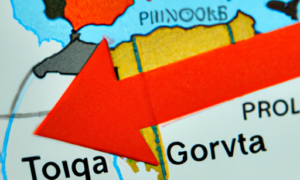
Hey there fellow expats! You know, when it comes to buying a house in the Netherlands, things can get a bit tricky, especially when it comes to inheritance laws. So, let’s dive into this whole shebang and understand what we’re dealing with, shall we?
First things first, let’s define what an expat is. An expat is basically someone who’s living in a country other than their own, typically for work or other reasons. And let me tell ya, being an expat in the Netherlands can be both exciting and overwhelming, but understanding the local laws is crucial, especially when it comes to inheriting property.
Now, let’s talk about Dutch inheritance laws. These laws determine how property is transferred from one person to another after someone passes away. And let me tell ya, they are different from what you might be used to in your home country. So, it’s important to do your homework and know what you’re getting yourself into before taking the plunge into the Dutch property market.
Researching the Property’s Ownership History
Now, this is where things get interesting! Before diving headfirst into buying a house in the Netherlands, it’s crucial to do some detective work and research the property’s ownership history. Trust me, it’s not as dull as it sounds. Knowing who owned the property before can provide valuable insights into any potential issues or red flags you might come across.
Why bother with digging into the property’s ownership history, you may ask? Well, it can help uncover hidden problems like disputes or outstanding mortgage payments tied to the property. Plus, it’s always fascinating to discover who walked through those halls before you. It’s like being a historical explorer!
You’re probably wondering how to go about investigating this mysterious ownership past. Fear not, I’ve got you covered. Start by gathering as much information as you can from the seller or real estate agent. Ask for documents like the title deed, land registry extracts, and any previous contracts. These can give you a starting point for your research.
Next, it’s time to put on your Sherlock Holmes hat and head over to the Dutch land registry website. This online resource will be your trusty sidekick in unraveling the property’s ownership history. Simply enter the property’s address, pay a small fee, and voila! You’ll have access to a treasure trove of information.
While conducting your investigation, keep an eye out for any inconsistencies or surprises. You never know what juicy tidbits you might stumble upon! Make notes of any potential concerns or questions to raise with the seller or your notary.
Remember, my dear reader, researching the property’s ownership history is crucial to ensure a smooth and problem-free house buying process. It’s like doing your due diligence before making a big purchase. By putting in the time and effort to uncover any skeletons in the closet, you’ll be better equipped to make informed decisions and avoid any unpleasant surprises down the road.
For more detailed information on researching a property’s ownership history when buying a house in the Netherlands as an expat, head to BeingExpat.com. They have some fantastic resources that will guide you through the process like a seasoned detective!
Understanding Inheritance Taxes
Oh boy, inheritance taxes! What are they, you ask? Well, let me break it down for you. Inheritance taxes are the taxes you gotta pay when you inherit property or money from someone. They can be a real pain in the neck, but hey, it’s the law, right?
Now, when do you have to pay these taxes? Great question! You’ll have to cough up the dough when you receive your inheritance. That’s right, as soon as the property or money is in your hands, the tax man comes knocking. No waiting around here!
Hold on though, before you start panicking about how much you’ll have to fork over, let me tell you this – the amount of inheritance tax you need to pay depends on the value of what you’ve inherited. So, the more valuable the property or money, the more you’ll have to shell out. It’s just one of those things, unfortunately.
So, when you’re buying a house as an expat in the Netherlands, it’s crucial to keep these inheritance taxes in mind. You don’t want any surprises down the line, trust me. Get familiar with the laws and regulations, or better yet, consult with a tax expert who knows their stuff. They’ll be able to guide you through the ins and outs of inheritance taxes, so you don’t get caught out!
4. Working With a Notary
Alright folks, let’s get down to business and talk about working with a notary when buying a house as an expat. Now, you might be wondering, what the heck does a notary even do? Well, let me break it down for ya. A notary is basically a legal expert who plays a key role in the whole house-buying process. They handle all the important paperwork, make sure everything is legally sound, and ensure that the transfer of ownership goes smoothly.
So, why is working with a notary so flippin’ important for us expats? Well, let me tell ya, navigating Dutch inheritance laws can be a real maze, especially when it comes to buying property. A notary has the knowledge and expertise to guide us through the whole shebang and make sure we don’t get caught up in any sticky situations. They know all the ins and outs of the laws, so they can make sure we dot our i’s and cross our t’s.
Now, finding the right notary can be a bit like searching for a needle in a haystack. It’s crucial to look for someone who specializes in working with expats and has experience with the Dutch legal system. Trust me, you don’t wanna end up with a notary who’s as confused as a cow on roller skates, ’cause that’s a recipe for disaster. So, take your time, do your research, and find a notary who’s got your back.
Conclusion
Well, folks, that’s a wrap! After diving deep into the ins and outs of Dutch inheritance laws as they relate to expats buying a house, I’ve got to say, it’s been quite the adventure. From understanding the definition of an expat to sifting through the complexities of researching ownership history, and from tackling the puzzle of inheritance taxes to finding the perfect notary, we’ve covered it all.
To sum it up, navigating Dutch inheritance laws when purchasing property as an expat requires some serious legwork. But fear not! Armed with the right knowledge and a team of legal professionals, you can confidently navigate this tricky terrain. Remember, it’s crucial to thoroughly research the property’s ownership history to avoid any surprises down the road. Understanding inheritance taxes is also essential, as you’ll need to know when and how much to pay. And let’s not forget about the invaluable role of a notary in this process, guiding you through the legalities every step of the way.
So, my fellow expats, take a deep breath, gather your resources, and conquer the Dutch inheritance laws like the seasoned pros you are. With persistence, patience, and a little expert advice, you’ll soon be enjoying the keys to your new Dutch dream home. Happy home hunting!





